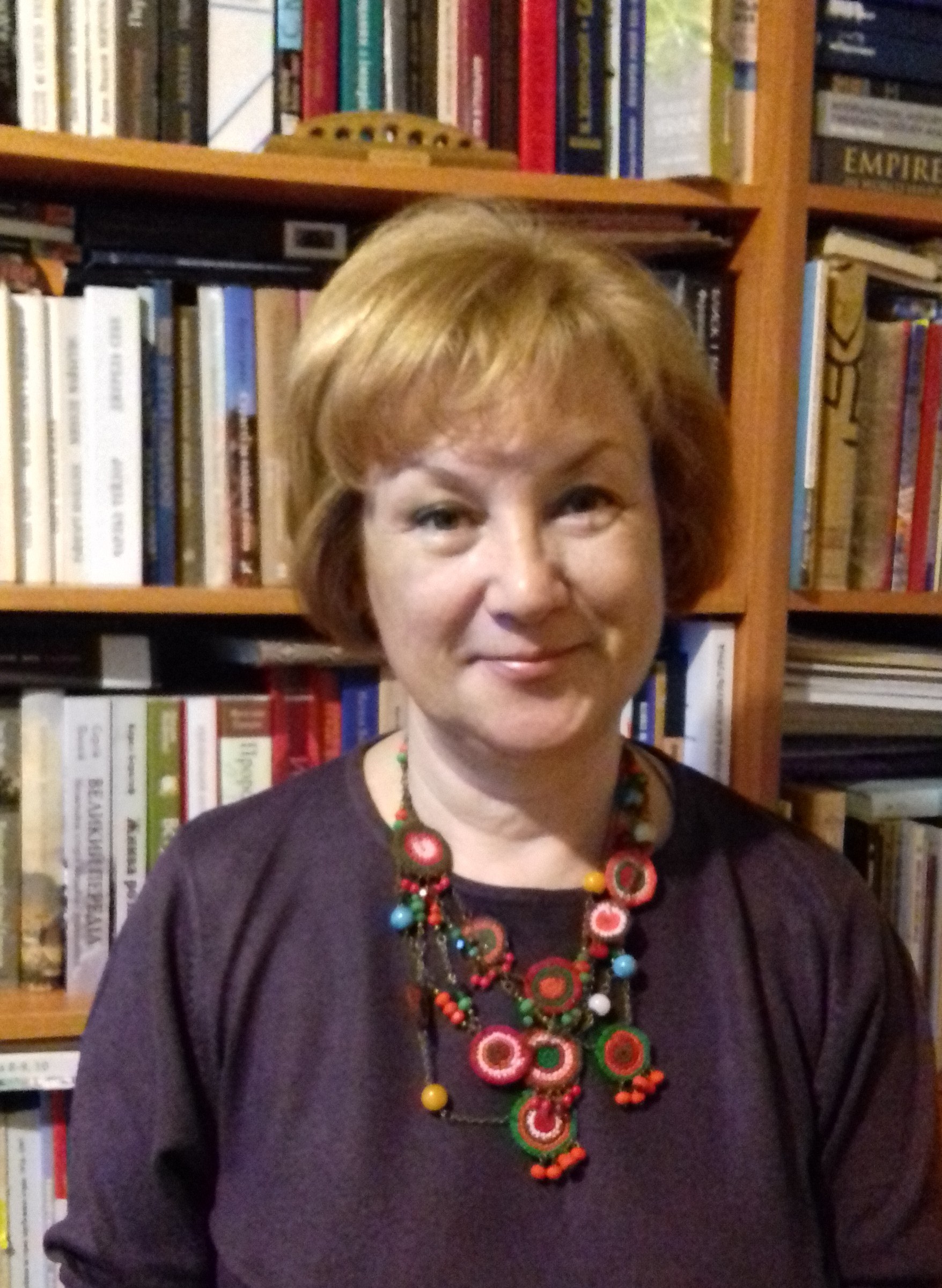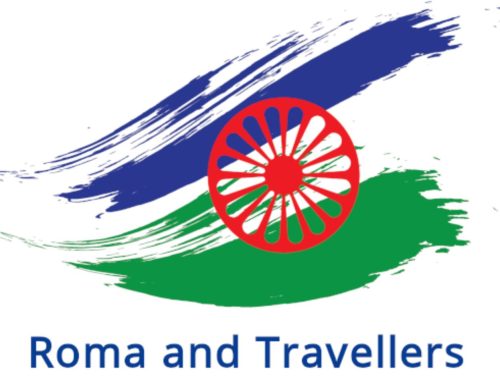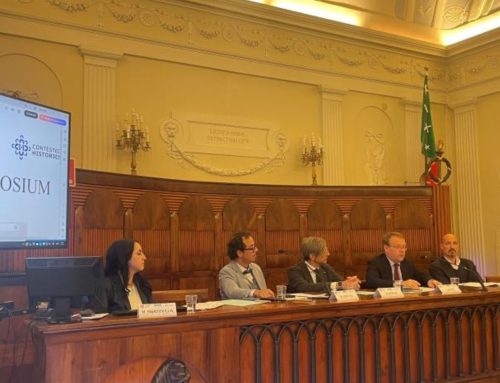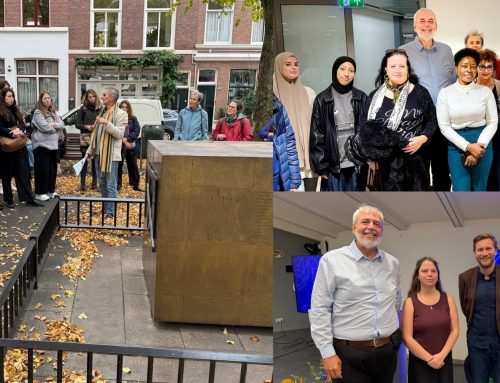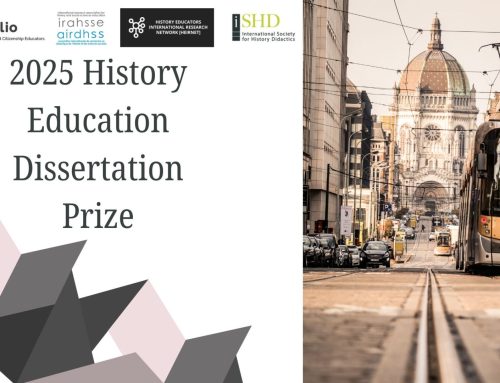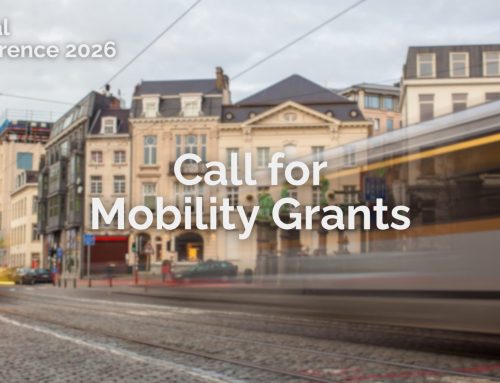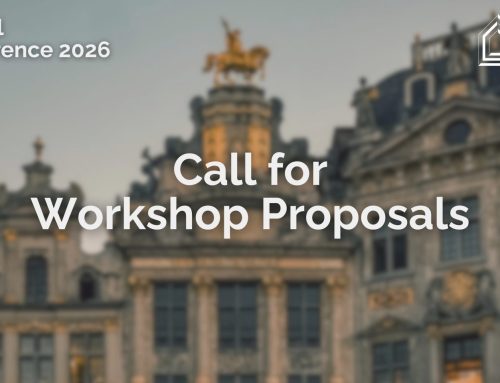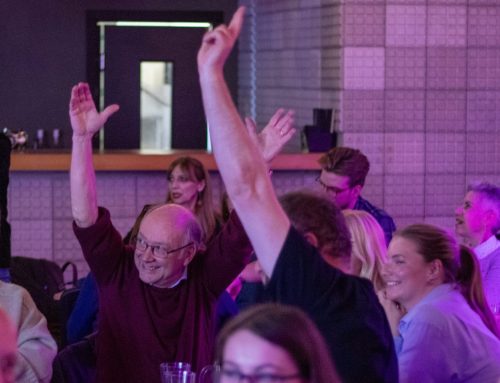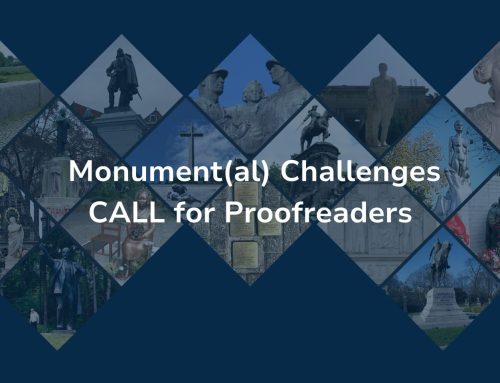Irina Kostyuk
EuroClio Affiliate 2000-Present
“EuroClio has been the best part of my professional life.”
Irina Kostyuk has 25 years of teaching experience as a History and Social Studies teacher and more than 10 years as a teacher trainer. She cooperated with the Ukrainian Association of Teachers of History, Social Studies and Civic Education “Nova Doba” from its creation in 1997. From 2001 to 2004 she was one of national coordinators of the European-Ukrainian project “New times, new history”, initiated and supported by EuroClio (MATRA program of Ministry of International Affairs of Netherlands). During the last 10 years she participated in numerous Ukrainian and international seminars on issues of historical and civic education, including Council of Europe seminars on Ukraine on standards, curricula, and textbooks problems. She was a member of the History component of the working group of the new standard and curriculum under the Ministry of Education of Ukraine in 2011 and 2012. She also has worked on projects with the Anne Frank House, the Institute of the Visual History of USC, and USA in Ukraine. Iryna is a co-author of several teaching materials and articles. As a teachers’ trainer she has held about 70 seminars in the different regions of Ukraine and she is still trying to improve the EuroClio approaches in schools’ History education.
Q: How did you first get involved with EuroClio?
I remember it very well. In 2000, one year before my involvement with EuroClio activity in Ukraine, I went on a study visit to the USA with six other history teachers who were members of an NGO for Ukrainian history teachers, “Nova Doba” This organization was created by Pjlina Verbytska, a young, smart, active history teacher. “Nova Doba” was one of the first organizations in Ukraine that started to work with international partners in the Civic Education field, and it had a project titled “Education for democracy in Ukraine” involving colleagues from USA. It was completely new for us; we had some social studies, but not civic education in a real sense, and this project was successful. Pjlina Verbytska, as the organizer of our NGO, visited some international conferences devoted to innovations in the History and Social Studies Teaching/Learning. She met Joke at one of these conferences, as I recall, and the will of EuroClio to share new experiences and to bring good possibilities to make innovations in accordance with European standards was obvious. We were happy because at that time, no projects for math or science teachers were being started; only projects for history and civic education teachers were started, because these subject are about an outlook on the world. After some previous agreements the decision to start a new project in Ukraine was made.
Exactly on the first of September, a very significant day for all teachers in our country and for me personally, I was invited to Kiev, where I met Joke van der Leew-Roord and Hubert Kriins. They were with Pjlina Verbytska, who asked me to join the project as a second project coordinator in Ukraine. It sounded so attractively and surprisingly, I was not sure I could do it. And I remember how Joke said, “Yes, it could be hard work, of course you will be tired very often, but I promise- it will be very interesting! And now, many years after, I can say that these years were the happiest in my life, not only for work but for my personal life as well. There were new meetings, people, experiences, conferences, and I was completely happy, though it was very hard work and very new for me and my colleagues. Many examples of these new experiences come to mind, including the coordinator’s meeting in The Hague in February, 2002 in the company of Pjlina, Joke and Hubert, the study visit to Scotland with members of our project team – Andrey Osmolovskyi and Yuriy Komarov – in September, 2002, participation in many conferences in Italy in 2004, or the meeting and the friendship with colleagues from Bulgaria and Macedonia, Latvia, Estonia, Russia and other countries. During all these meetings, we communicated with history teachers and we saw another style of teaching: multiperspectivity, more than one truth, a source-based approach, and so on. This was about the possibility of exchanging opinions. It was so important for all participants of the project in Ukraine, and at the same time, I think that we brought Ukrainian teachers this new fresh view.
Now, I understand that the great result of this project, “New Times, New History”, was in reality due to the big team of Euroclio experts that worked with us – Christa Donnemaer from Austria, Richard Dargie and Duncan Toms from Scotland, Julia Kushnereva from Moscow, and many others. Of course we were very happy with this textbook for students, “History of Epoch. Ukraine and Europe in 1900-1939” and the teachers’ guide for it. These two books were absolutely new for our pedagogical traditions; even the publishing style of design was new. The personal experience of each participant was great, and the influence of the publishing affairs of history in a textbook was great. However, the main problem of this project was that we did not have enough seminars for teachers. We created a new product, but distributing it and teaching with it was problematic because it was so new; additionally we printed only 3.000 books, but at this time we had 24.000 schools in Ukraine.
Of course, the possibilities to change the whole situation with history teaching were limited in such a big country after the long period of Soviet and Post-Soviet history education. Year by year, the participants of EuroClio activity in Ukraine, including the projects “Multiperspective History of Ukraine” in 2012 and the last one, “Crossroad of Cultures” in 2015, tried to disseminate the ideas of EuroClio about responsible teaching of history in the 21st century. The efforts of sharing the obtained knowledge and experience among history teachers have got a good chance to change History curricula according to the EuroClio approach.
In 2012, I was a member of a working group under the Ministry of Education umbrella, and we were invited to create a new history curriculum for secondary schools. For me, it was a unique chance to realize the ideas of EuroClio. We tried to bring special lessons without narrative texts; we named these, “practical lessons”, and these were based only on different kinds of sources for the development of critical thinking. To my deep regret, this idea was not realized fully. In 2014, the Ministry initiated “the improving of curriculum” stemming from change the political leadership in country. Teachers still use all the ‘correct’ words because we don’t have the right materials to truly work with information, develop critical thinking, and develop students’ personal opinions. Instead, teachers continue to try to give students conclusions and “correct views” about controversial, sensitive issues. We also have a lot of people without a good, modern education and without access to internet, and a lot of teachers don’t know about access to textbooks created by “Nova Doba” with EuroClio support, because there are not enough copies, not enough prepared teachers, and the official discourse is based only on a “right”, patriotic view of the past. It is like a very good cake that is eaten only for birthdays, but not every day. This is a deep problem.
I believe that the EuroClio approach is the most correct approach for the current situation in the world. We cannot teach about the “right” past. After our last war, and aggression from Russia, of course we have movements with nationalistic contexts, and the officials of our national institute of memorialization give teachers recommendations about the correct teaching of the past. These individuals decide what is true or not in our common past, and now especially with this aggression of Russia, according to these officials, Russia has been the enemy of Ukraine throughout its entire history, but it’s not true! It’s a very controversial situation.
For me it’s painful, because I believe that history education is about multiperspectivity, individual interpretations of students and their different views, everyday history, and different groups’ voices of society in the past. In the current context in Ukraine, this kind of multiperspectivity is fading. It means that the influence of EuroClio exists, but not for all. One of the challenges has been deciding who will go to the conference from Ukraine, because it depends on a knowledge of the English language. Teachers with 20 to 30 years of experience often don’t have English, so a lot of information and lesson plans aren’t possible to use.
Q: Do you have a first or favorite memory of working with EuroClio?
EuroClio is the best part of my life. I am not young, but I remember all the annual conferences where I was as a participant and encountered not only professional experience, but also the human experience of connection with others who helped me understand myself, my country, and the current world as far it is possible at all. And of course, the style of EuroClio is working with different people based on respect and quality of partners. It doesn’t depend on which country you’re from. That doesn’t matter. I believed and I saw that relationships depend on individual personalities. And I think it depends on our personal, professional, and human input to common activity. I am very thankful because I’ve been involved not only in this project for Ukraine, but also the Black Sea Project; through this, I’ve seen that these are not just our problems. Other countries have the same kind of problems.
It depends on our common understanding: what is the real past for us. The new generation understands another kind of past; many of them don’t know who Lenin was, what Soviet power was, or what Gulags were. I think it’s not a huge problem, because they know another history; they know about the Kozac area in Ukrainian past, or the relationship with Poland. People like me and my colleagues, through personal teaching, bring the issues of the Holocaust and controversial issues, which are sensitive topics for Ukrainians, but it’s not official. I hope that in the future this may change.
The Annual Conference is the best and it’s a privilege to be invited. These conferences aren’t only great because of hotels and food; the main thing is communication with people who think like you, who are responsible for youth and teaching the past. We are responsible for something in this world, because it’s a mission of good. And it doesn’t depend on what country you come from. We have different lifestyles, and different welfare levels, but that’s not important when we meet.
Q: What is the role of EuroClio today? In the future? How will it develop?
I think that EuroClio’s influence could be deeper in Ukraine. For example, the person that is responsible for history education was abroad for lots of different conferences. But, if we have some change of political course inside the country, everything from EuroClio could be lost. I think that probably, I don’t know how it’s possible to change so quickly, and cooperation with Ukraine has existed since 2001, but there are a lot of textbooks that don’t have the stamp of the ministry. They support our activity only in cases where it is not opposite to the main track of the ministry. This difficulty is not only problematic for Ukraine, but also probably for Russia. I think that if EuroClio had new ground for new projects in Ukraine, one of the points of the project should be some duties of the Ministry. For example, there should be duties about human rights education, because we have official, formal duties to improve rights education due to the worldwide problem that exists, and the fact that we have a responsibility to the Council of Europe. In addition, there are recommendations of history teaching in the 21st century and I’m not sure that they are translated to Ukrainian teaching.
Q: In your career with EuroClio what has been your greatest challenge?
The biggest challenge for me today is the nationalistic trend in education policy. The new curriculum that we have in 2017 is mostly centered on political and military history. For me, it’s actually a step back after the curriculum of 2012.
Q: Within EuroClio and outside of EuroClio, who has influenced you the most professionally and/or personally? Who have you connected with?
There have been several people. Riitta Mikkola from Finland was in Kiev with her colleagues because they had a five hour break between flights, and she asked me for things to do in Kiev. I helped her, and organized things for her to do! And that is possible only through the EuroClio context.
Klaus Bierre from Denmark is another. My son and I were invited to his home, and this was a great experience. Without EuroClio, I wouldn’t have had any possibility to see this new country.
A lot of places, I’ve only gone because of EuroClio. When I need something, I’m sure I can ask about it, and people will help. It’s a huge network based on interpersonal attitudes and relationships, not only within the official realm but beyond.
Q: How has your perspective on history education changed since you began working with EuroClio?
It has made me realize that we need projects for students at pedagogical universities, because they will come to teach at schools, but right now, they only know the traditional approach. Now we have a very interesting experience with a summer institute for volunteers who haven’t had pedagogical teaching. They agree to go to school, but from what I have seen, these people who haven’t had the pedagogical university education have actually had a more open and wider outlook than those who graduated from pedagogical university! Probably if EuroClio plans to have a deep influence, students of pedagogical universities who plan to go to schools and change things need to be targeted with teacher guides.
I’d also like to make another point. I live in a small town, and I am a provincial teacher. I have no official job position with a huge influence, but I try when I communicate with others, to say, “OK. We have some problems in our country, but many people have problems in this world.” War exists not only in this small part of Ukraine, but rather, it exists in many countries. Therefore, if we can maintain our professional level, it’s very important for our kids and our families. Because sometimes these kids go on to have other influences. Your smiles, your assurance, the fact that you are light and have pleasure from your lessons. That is so important. We have an excellent job. You have your own theater when you close your classroom door. Do it with pleasure and give your pleasure to students; it is an exchange of energy. History is an excellent subject that reaches out beyond the curriculum. I try to bring this perspective in seminars and in teacher trainings, and I tell people to think about it. I’m sure that my opinion on these matters has brought me to EuroClio.

